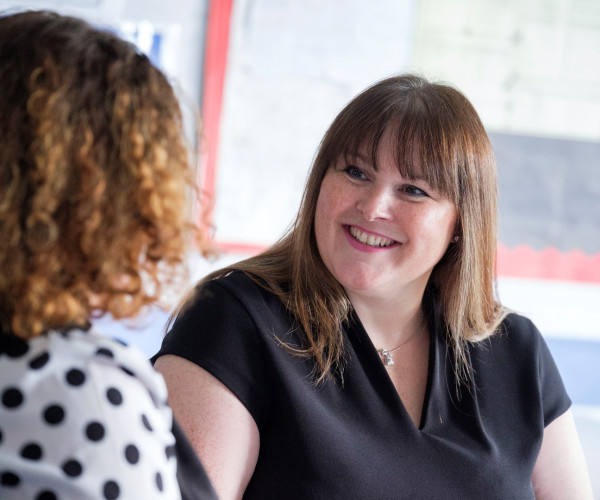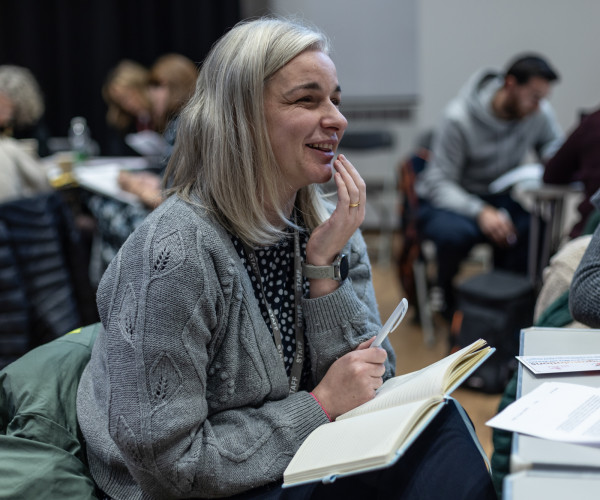Spotlight on why teachers don't need to fear AI
Posted 4th June 2024
A think piece by Richard Sheriff, CEO, Red Kite Learning Trust
Wherever we look these days AI, ‘Artificial Intelligence’, is mentioned. From manufacturing to accountancy, jam making to medicine, AI will apparently make humans redundant and either create an idyllic new leisure society or mass unemployment and despair, depending on what article you choose to read. Away from the tabloid headlines and hype, AI has already started to make a positive difference in some sectors, for example, reducing the drudgery from aspects of financial audits, increasing the accuracy and speed of the analysis of medical imagery and creating useful summaries of long documents. One of our Trustees recently demonstrated to us how ChatGPT, a form of generative AI, could summarise the 14 sets of minutes from our Local Governing Bodies and present a very useful short report of the most saliant issues arising. As a Trust with an aim to, ‘Innovate with technology’ we are thinking carefully about how AI can help us become more efficient and effective in delivering services for schools.

But what about teaching? Has the day of the robot teacher finally arrived? There are undoubtedly applications for AI within the learning sphere, just take a look at ‘Khanamigo’ and see what an AI supported virtual tutor could do for children. This could be an example of technology democratising personal tutoring, traditionally the preserve of the privileged few, and aiding social mobility. ‘Century Tech’ has been in use in several of our schools for some years now and has demonstrated the capacity of AI driven software to support children’s learning. Such applications will develop further and hopefully remove some of the less loved aspects of teaching, such as marking. We know that the primary function of marking is to check for understanding and help plan the next lesson. Checking through lots of scripts and looking for errors, omissions or recurring misunderstandings is something AI could do, as well as then producing a summary of suggested priority areas for the next lesson. Imagine taking that set of books home, enjoying a nice relaxing evening and then waking up to find they have been marked and your lesson plan is all ready for you! Of course, the books will be virtual as we will have all joined the move to creating and submitting work in digital form - just visit Western Primary School or Harrogate Grammar School if you want to see this in action, every day.
So, will AI make the teacher redundant over time? A very firm ‘no’ to that question. In my 37 years of working in our profession, I have had the privilege of observing many hundreds of lessons in a great many different contexts through the lens of colleague, curriculum leader, senior leader and Ofsted inspector, framed by very different Ofsted inspection frameworks. A reasonable evidence base, although not worthy of inclusion in the EEF Teacher Toolkit just yet. From that evidence I suggest that there are just three key ingredients that make for great teaching; relationships, deep subject knowledge and the ability to ‘read the room’.
Successful learning
Relationships
The ability to develop appropriate, positive and productive relationships with children is at the top of this particular triangle because everything else depends on this. No amount of pedagogical or subject knowledge can compensate if this is not there. Funnily enough we seldom overtly use the ‘lexical field’ associated with great relationships when considering the strength of teaching. Here are some words that I feel should feature more in our lesson observation notes if we are to really understand effective teaching: joy, passion, warmth, empathy, inclusion, trust, humour, humility, compassion, sympathy, forgiveness, tolerance, determination.
These words really matter, great teachers rarely give themselves credit for their application and mastery. Even the most sophisticated AI is unlikely to ever master this area of what it is to be human.
Reading the room (AFU)
Assessment for Understanding (AFU) is a technical pedagogical term that we use to describe whatever assessment methodology we are utilising to understand better what our children have learned so far from our teaching. ‘Reading the room’ is a more generic term that describes what great teachers do as they cast their eyes over their class and identify who has not yet grasped the new learning, who is roaring ahead and who is struggling so much that they now prefer to stare out of the window. Such teachers show empathy towards their learners and constantly adjust their pace, timing and attention to individual needs. They don’t just ‘teach on regardless’ intent on getting to the closing point in their carefully constructed lesson plan. Empathy is a distinctly human quality that AI will never master; replication is not mastery.
Deep subject knowledge
‘Expert’ teachers inspire confidence in learners. Teachers with deep knowledge are confident to riff’, not just play to the set tune. Whether it is phonics in the early years or A level Maths, teachers need to know their stuff to be able to inspire confidence in their class and confidently diagnose and resolve misunderstood concepts, knowledge, and meaning. We all know that knowledge is everywhere and that fancy algorithms, search engines and AI find knowledge that would once be the preserve of academics and experts. Meaning is much more slippery and requires us to understand nuance, inference and context and make professional judgements about what is truth and to who. This is the preserve of the human intellect.
The tools teachers use
Within the triangle are the tools that a teacher uses to ply their professional craft. There is no ‘best’ pedagogy, teachers use their professional judgement to expertly choose from a range of approaches using their wisdom to meet the needs of their children and the objectives of the curriculum. Time is a key tool, pacing the lesson, planning the timetable, designing the sequence, and timing of curriculum implementation. The curriculum is clearly at the heart of any teachers work and the physical and emotional environment of the classroom is also there to be sculpted by the teacher to best meet the needs of the learners. Technology, including AI is just one more of these tools and great teachers will apply their professional skills to get the most out of what technology can offer. Technology, like all the other tools we use, needs to be put in its place however, relationships come first.
I collated further evidence to support my conclusions when I visited the wonderful Whitkirk Primary School to say thank you to Afua Downes, senior leader, SEND (Special Educational Needs and Disabilities) Lead and Year 5 teacher. Afua took on a struggling Year 5 class at the beginning of the year and with her teaching their progress has been amazing. I asked Afua what she had done to make this happen, what secret pedagogical device had she deployed to make such a marked difference in such a short space of time? Afua struggled to explain her success, all she said she had done was the normal stuff of teaching a year 5 class. What she was too modest to mention, and perhaps even too humble to recognise herself, was the magic of the teacher. Afua deployed the things that make the real difference to children, joy, passion, warmth, empathy, inclusion, trust, humour, humility, compassion, sympathy, forgiveness, tolerance and determination. All the things AI can never replace.





